Last Updated on July 2, 2021 by Dr Sharon Baisil MD
According to Diabetes experts, weight management is the key to manage PCOS, by following a healthy low glycemic diet plan.
PCOS stands for Poly Cystic Ovary Syndrome and is also called PCOD. Here is the list of the 10 best Indian foods that should be included in the diet plan of women suffering from PCOS.
10 Best Indian Foods for PCOS Diet
1. Low GI Foods

Low glycaemic index foods promise a smaller number of calories. The lesser the number of calories, the lesser will be the impact on the female hormones that are causing raised blood glucose levels in a woman afflicted with polycystic ovarian syndrome.
In PCOS, there is insulin resistance, which means that there is a higher chance of blood glucose going up to pre-diabetic/ diabetic levels. If you consume low glycemic foods like whole fruits, green vegetables, whole grains, lean protein, and healthy fats, it will bring the blood glucose levels under control. Some of the dairy products and nuts can also be included in the list too.
High-GI foods include pastries, cakes, sweets, and biscuits made from sugar and Maida and should be avoided.
2. Healthy Fats
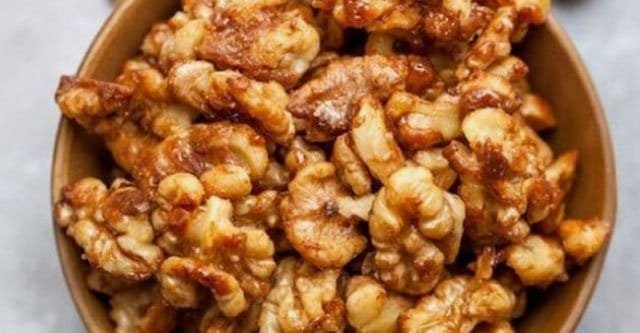
The word ‘fat’ has a very heavy effect on our female brains. We need not bother much about it. The only thing you need to do to avoid getting fat is to start consuming healthy fats.
Healthy fats include oily fish, avocados, coconuts, olive oil, unsalted nuts, and seeds. Nuts and seeds like walnuts, flaxseeds, pistachios, almonds, sunflower seeds, and pecan nuts. Healthy fats are the key members that maintain the cell walls. Foods that contain omega-3 fatty acids can be consumed.
The only two fats you should avoid are trans fats and saturated fats. Trans fats include doughnuts, frozen pizza, and French fries. Saturated fats include processed meat.
3. Green Leafy Vegetables
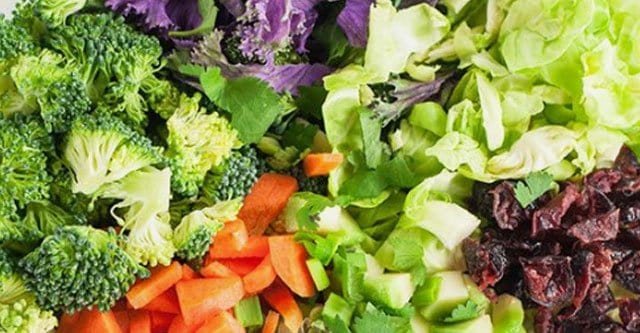
Throughout our childhood, our mothers have made us obey their constant reminders of ‘have green leafy vegetables, get green leafy vegetables, cook them, eat them’.
For PCOS, which has a deficiency of Vitamin B, green leafy veggies are going to be your saviors! Symptoms like irregular periods, obesity, hirsutism, and insulin resistance can all be handled well by the power of spinach or Palak, lettuce or salad, dried beans, legumes, lentils, and broccoli.
They are blessed with micronutrients like iron, calcium, potassium, magnesium, Vitamin K, Vitamin C, and Vitamin E. Spinach can increase folate content in your body during pregnancy.
4. Colored Vegetables
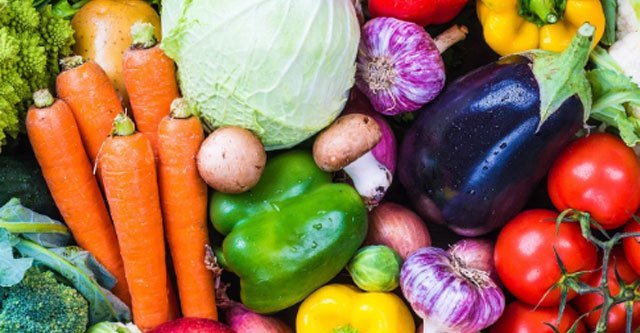
In PCOS, insulin resistance is found. This insulin resistance causes the production of free radicals in the body. These free radicals cause damage to the cells of the body and cause early aging.
In foods, you need anti-oxidants that can destroy these free radicals. In colored vegetables, like tomatoes, carrots, capsicum- green, red, and yellow, sweet potatoes, eggplant, or baingan. These foods can reduce the oxidative stress seen in PCOS-inflicted women.
5. Low GI Fruits

For PCOS, you are recommended to consume low glycemic fruits like red grapes, oranges, apples, mosambis, strawberries, avocado and guava. These fruits are high in fiber. Fibrous fruits are known to reduce blood sugar levels.
Thereby helps in reducing the amount of insulin produced. It can aid in weight loss for women with PCOS who generally suffer from weight gain. Fruits like raw bananas can help in preventing PMS (pre-menstrual syndrome). It has the power to prevent cramps, spotting, and migraine.
6. Liquid Food Items
a. Recipe of blackberry and blueberry smoothie for PCOS:
- 1 cup plain yogurt
- 2 cups ice
- 2 cups blueberries
- 2 cups blackberries
- 1 cup 1 percent milk
- 1 teaspoon of vanilla extra
Mix all the ingredients in a blender. Serve immediately.
b. Recipe of protein chocolate smoothie for PCOS:
- 1 banana
- 1 cup almond milk
- 1 cup of ice
- 2 tablespoons of cocoa powder
- 1 tablespoon of flax seeds
- 2 tablespoons of peanut butter (optional)
- 1 scoop of protein powder (your favorite)
Mix all the ingredients in a blender. Serve immediately.
7. Green Tea

Women who suffer from PCOS mainly experience chronic inflammation that could cause cardiovascular complications in some. Green tea could induce weight loss in such women, also if it is taken for long, the inflammation caused due to PCOS could reduce to some extent.
Green tea helps in improving your metabolism. Symptoms like hirsutism can also be improved through it. It causes both reduction in insulin resistance as well as body weight. Green tea is a powerhouse of antioxidants beneficial for reducing oxidative stress that is caused by PCOS. Stress precipitates PCOS, and green tea is good for it.
8. Healthy Soups

a. Apple and Onion Soup Recipe
- 3 small cut apples
- 6 cups fat-free and low-sodium vegetable broth (rassa)
- 2 small onions
- 1 tablespoon olive oil
- ½ tablespoon chopped rosemary
- ½ tablespoon fresh thyme
Heat them well over medium heat. Shake for 10minutes. Enjoy your soup!
b. Tango Tomato Soup with Basil
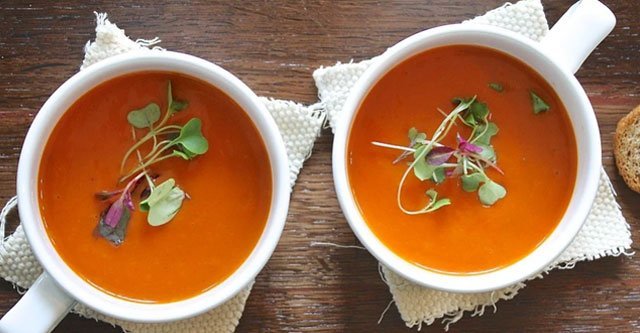
- 2-3 tomato mixture
- 1 tablespoon of olive oil
- 3 garlic cloves
- 2 tablespoons of freshly chopped basil
- ½ tablespoon of apple cider vinegar
- ¼ tablespoon of salt
Heat them well for 5-10 minutes. Turn off heat and stir in basil. Serve hot. And, enjoy your soup!
9. Brown Rice
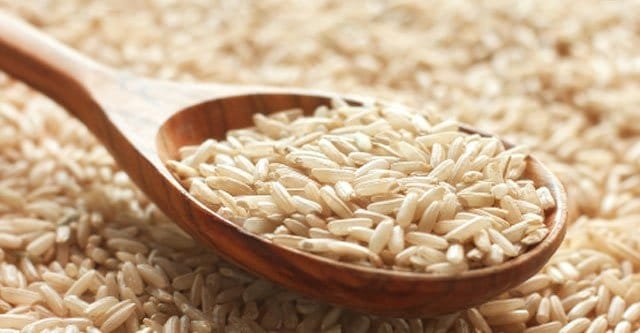
Unlock the magic of brown rice as it is blessed with more than the required fibrous grains for your body. Most people run away at the mention of rice, especially the ones who are obese.
Here’s a bowl of brown rice with all its mystical properties of lowering insulin levels, fighting oxidative stress with the help of oxidants, lowering inflammation, and promoting the production of healthy gut bacteria.
It is a rich source of Vitamin B and keeps your weight in check. If you experience irregular periods, then the iron content present in brown rice can make up for the lost blood.
10. Multigrain Biscuits
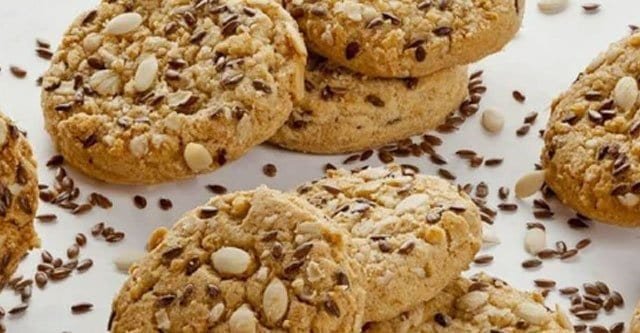
Biscuits in India are mostly made from Maida. Maida means weight gain and saying goodbye to weight loss meal plans. Weight gain is one of the major symptoms of PCOS. So, consuming biscuits that are made from Maida is out of the question.
Instead, biscuits made from multigrain or whole grains are not just healthy, but also fat-free and full of fiber. Fibrous foods like multigrain biscuits can help in reducing insulin resistance and promoting healthy gut bacteria. Every 3-5 hours snacking is required by the body of a PCOS-inflicted woman, and, multigrain biscuits are the solution.
5 Worst Foods to Avoid on a PCOS Diet
The diet plan for PCOS would be incomplete without mentioning the foods you need to limit. Hence, below is the list of foods you must avoid to keep away from all the adverse circumstances.
1. Refined carbs
Refined carbs are empty calories, they don’t provide you any energy, rather a lot is sugar is loaded in your body that only harms you. Therefore, it’s better to avoid refined carbs.
There is also another good reason to switch off these bad carbs. Eating less refined carbs will lead to weight loss. This, in turn, brings the androgen levels down. Moreover, excessive hair growth, acne, anovulation, and abnormal menstrual cycles, all will come under control.
The common foods containing refined carbohydrates you must be ignored are:
- Pizza
- White bread
- White rice
- pasta
2. Sugary beverages
While some of the homemade juices squeezed out of fresh fruits might be healthy, bottled juices are just a storehouse of harmful sugars. Stay away from packaged sugar beverages, candies, and sauces. If you have cravings for the juice, prepare one at home by yourself. The fruits must be favorable for the PCOS diet, remember this.
Some sugar-loaded drinks to avoid are:
- Bottled juices
- Cold-pressed drinks
- Soda
- Candies
- Packaged fruit juice
3. Trans and Saturated Fats
The kind of fats like the ones found in over-processed meats is sure to harm your health during such a condition. It is important to rely on healthy fats that fetch essential vitamins to the body, not the ones that can invite inflammation.
In case you are wondering which fats to avoid, we have a checklist for you:
- Processed red meat
- Burgers
- Doughnuts
- Pizza
- French fries
Above are the foods with trans and saturated fats, which you need to avoid.
4. Dairy Products
According to published research in an international magazine, limiting the number of dairy products can significantly help to lose weight.
There is a special case where your body might be intolerant towards dairy products. In such a case, you need not restrict dairy products in your diet. However, if you are sensitive towards dairy diet, then say no to foods listed below:
- Processed cheese
- Yogurt with added sugar (go for plain Greek yogurt instead)
- Ice-creams
- Cakes and candies with heavily loaded sugars
5. Alcohol
Women with PCOS already have high rates of fatty liver and alcohol will worsen the situation further. In other words, alcohol is a toxin for women with PCOS.
Besides this, distance yourself from cocktails loaded with sugary mixtures and canned cocktails. If possible, the wise option would limit going to parties where you are forced into consuming such things. You need not attend every party, right?
References
- https://www.tandfonline.com/doi/abs/10.1080/01443610701667338
- https://onlinelibrary.wiley.com/doi/abs/10.1111/cen.12175
- https://academic.oup.com/humrep/article/32/3/669/2874180?login=true
- https://www.sciencedirect.com/science/article/abs/pii/S0026049514002108
- https://www.mdpi.com/2072-6643/11/10/2278
- https://www.ncbi.nlm.nih.gov/pmc/articles/PMC4516387/
- https://link.springer.com/article/10.1007/s00449-020-02320-w









